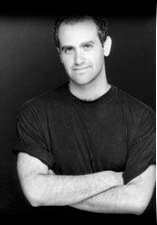Reviews 2001






✭✭✭✩✩
by José Triana, translated by Sebastian Doggart, directed by Tom Diamond
HAM Theatre, Toronto Fringe Festival, Tarragon Theatre Extra Space, Toronto
July 5-14, 2001
“Murderous Fantasies Cuban Style”
Among the 105 entries in this the 13th edition of the Toronto Fringe Festival is the English-Canadian première of "Night of the Assassins" ("La noche de los asesinos") by the Cuban playwright José Triana. The play first published in 1964 probably owes too much in theme and structure to Jean Genêt's classic "The Maids" published 17 years earlier to have gained a foothold in the international repertoire. Nevertheless, as the HAM Theatre production demonstrates, "Assassins" has merits of its own.
Where in Genêt's play two maids who are also sisters fantasize about and ritually enact the death of their hated mistress, in Triana's play a brother and his two sisters fantasize about and ritually enact the death of their hated parents. In both, themes of alienation, domination and submission are explored through role-playing. But where Genêt focusses primarily on power and the meaning of power in a meaningless universe, Triana, who fled Cuba in 1954, focusses on change and how change can be defined in a absurd world. In Genêt we actually see Madame the object of the maids' hatred. In Triana we see the parents only as they are acted out by the three children, all taking turns at the roles. Indeed, the children act out not only these roles but those of visiting friends, the policemen investigating the murder, the lawyers at the trial, the psychotherapist for the boy and even the Devil and Death.
The children not only mentally enact the murder every night and imagine its future consequences, they also act out for each other the past injustices that have led to their hatred and even the flawed relationship of their parents, the source of their parents' harshness. The children dimly seem to recognize that their parents feel as trapped in their lives as parents as they do as children. It may be this realization that has kept the murder only in the realm of fantasy. But just as there is no unity between parent and child there is none among the children who continually bully and threaten each other. Oppression has bred oppression.
As one might imagine this kind of play makes huge demands on the actors. While all three could learn more about diction, emphasis and voice control, they do manage the hard part of making it absolute clear what role they are playing when even when roles shift from one line to the next. Hart Massey plays Lalo, the oldest and the one assigned to do the deed should they ever bring themselves to do it. He generally is overly vehement and calls attention to his acting even in his primary role. In contrast, Juana Awad as Cuca the next oldest and Marilo Nunez as Beba the youngest, are quite natural in their roles and capture more the sense of children playing their morbid game.
Mark Christmann has directed the play intelligently though at only 70 minutes within a 90-minute time slot, the play could have benefited from a less breakneck pace. Lina Falomkina's design is not attractive and she leaves us unclear as to the children's ages. Triana probably intends some parallel between these three children and those ancient parenticidal siblings Orestes, Electra and Chrysothemis, but nothing appears either in the direction or design to bring this out. Paul Cegys provides the versatile lighting and Pedro Ojeda and Juan Carlos Valencia the live music which Christmann uses to good effect and could have used more often. The play would be more effective in a more up-to-date translation than Sebastian Doggart's. Yet, whatever the failings of the production, this is a rare chance to see a play by Cuba's most famous playwright. Anyone interested in the Latin American drama or the byways of absurdism should not hesitate.
©Christopher Hoile
Photo: Hart Massey. ©2002 Rubinoff Productions.
2001-07-13



Night of the Assassins





